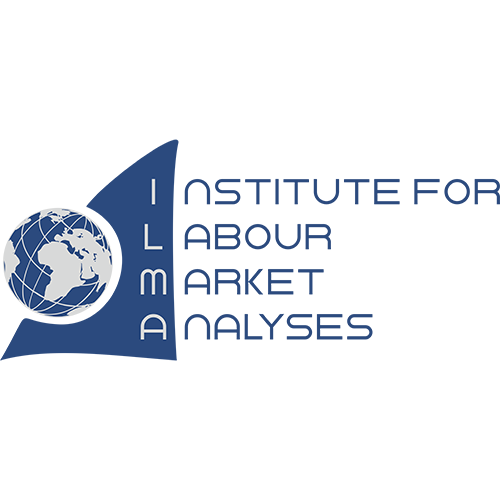Research and expertise developed by an interdisciplinary team of experts of the Institute for Labour Market Analyses are characterized by:
- Precise and comprehensive recognition of the analyzed issues
- An excellent methodology workshop
- Professional management of the research process
- Transparent reports from research and analyses
- Conclusions and recommendations based on the analyses and expert knowledge
We believe that the key to professional preparation of the research process is to precisely define the problems, which is why we place great importance to this stage of research. This allows for an accurate, yet multi-faceted characteristics of the analyzed phenomena. On a regular basis all IARP experts improve their skills in methodology, mainly through practical experience. At the same time they ensure that the content of research reports and expert opinions are presented in a clear and understandable for consumers manner. Many years of research experience guarantee the highest quality of service.
Chosen, currently carried out by IARP experts projects:
-
„Work-Life Balance Mechanisms in Polish Enterprises”
– analysis and counselling in Polish enterprises (MGR)Project by the Ministry of Family, Labour and Social Policy
- European Employment Policy Observatory – project carried out for the European Commission, DG EMPLO. Since 2009 expert services are being provided in the field of national labour market, in terms of studies concerning ongoing monitoring of trends on the Polish labour market and the implementation of employment policies. Expert work include regular reports, assessment of the National Reform Programmes and thematic publications
- Measuring Performance of EU Member States Skills Systems and Prioritising Skill Mismatches – project carried out on behalf of CEDEFOP by a consortium of organizations chaired by Cambridge Econometrics. Expert work include analysis of the availability of national information (static indicators and data) associated with mismatches, analysis of key issues and national priorities in this area and supporting the development of the final research report.
The list of the most important research and expertise carried out by IARP experts:
- Uzupełnienie opisów zawodów określonych w rozporządzeniu Ministra Pracy i Polityki Społecznej z dnia 7 sierpnia 2014 r. w sprawie klasyfikacji zawodów i specjalności na potrzeby rynku pracy oraz zakresu jej stosowania (Dz.U. z 2014 r. poz. 1145) – project commissioned by the Ministry of Labour and Social Policy, PL [link]
- PES to PES Dialogue – Dialog między publicznymi służbami zatrudnienia, cyclical project carried out for the European Commission, DG EMPL [link]
- Przygotowanie projektu sektorowej ramy kwalifikacji dla sektora IT w Polsce – project carried out in collaboration with Altkom Akademia SA (Lead Partner of Consortium) commissioned by the Institute for Educational Research, PL. The tasks of IARP experts include developing the concept of substantive IT Sectoral Qualifications Framework (including conducting desk research studies, preparation of preliminary and final version of the concept), developing an initial and final SQF IT, as well as substantive consultation of all outgoing materials to the Purchaser.
- Analysis of the demand for skills and competencies in the construction and education sectors in Poland – a project carried out on behalf of the Educational Research Institute under the project “Development of assumptions substantive and institutional implementation of the NQF (KRK) and the National Qualifications Register for lifelong learning“.
- ESF 2007-2013 Ex-post evaluation: Supporting the integration of disadvantaged groups into the labour market and society – project carried out for the European Commission, DG EMPLO, coordinated by ICF Consulting Services Ltd. Expert support includes the preparation of the national ex-post report on the impact of ESF initiatives in the area of social inclusion in Poland.
Other recent IARP projects:
- Providing targeted advice on ESF support to apprenticeship and traineeship schemes – project carried out in 2013-2015 in cooperation with Ecorys UK, commissioned by the European Commission, DG EMPLO. The project aimed at providing support to Member States in creating new apprenticeships and internships, in particular programs supported by the ESF and in improving the quality and effectiveness of existing programs, apprenticeships and traineeships. The project developed, inter alia, guides to good practices, including an analysis of critical success factors and characteristics of various systems of traineeships and apprenticeships across Europe. IARP’s role was to provide expert content support to assist Member States in the preparation of assumptions to training and internship programs and training in this area..
- Support services for Mutual Learning within the European Employment Strategy – project carried out on behalf of the ICF for the European Commission. Expert work included the preparation of the report Youth Guarantee in Poland A Policy Breakthrough or Continuation? for the purpose of Peer Review Conference on “Youth Guarantee” in Finland.
- Research in health care units – a project carried out on behalf of Warsaw School of Economics The study included one hundred and fifty interviews with representatives of hospitals (those responsible for financial settlement units or persons designated to be interviewed) using the CATI method.
- Study measuring economic impacts of various possible changes to EU working time rules in the context of the review of Directive 2003/88/EC – the project included establishing a national report on the possibilities of implementing changes to the Working Time Directive.
Selected research carried out by IARP as subcontractors of other entities:
- Examination of Gender Index in institutions involved in the implementation of PO KL (the development of individual reports for institutions, qualitative analysis of data) – Ministry of Regional Development, PL.
- The National Road Map in the field of reconciliation of professional and family roles (in-depth interviews & analysis, legal analysis of legal aspects of work life balance) – Human Resource Development Centre, PL.
- Formal and informal study of conditions of implementing the transfer and accumulation system of classified achievements in Poland based on assumptions of ECVET (analysis of qualitative data) – Institute for Educational Research, PL.
- Expertise on the data sources used to implement the counterfactual research as part of the evaluation of the ESF (description of the collection and analysis of data in databases) – The Ministry of Regional Development, PL.
- Usability testing for the product for the customer, i.e. to determine the potential usefulness of the measurement tool of human capital in the company for performing HR functions in various types of enterprises (CATI interviews n = 210) – Polish Agency for Enterprise Development, PL.
- Study of skills and competencies expected by employers of graduates of vocational education – a project implemented by GHK Consulting LTD on behalf of the National Centre for Supporting Vocational and Continuing Education, 2009.
Other national and international projects involving experts working currently with IARP in the area of employment and labour market:
- Costs and benefits of potential EU action in the area of paternity leave, Komisja Europejska DG EMPL
EU Skills Panorama, CEDEFOP - European Inventory on Validation of non-formal and informal learning, Komisja Europejska i CEDEFOP
- Evaluation of Europe Direct Information Centres, Komisja Europejska, DG EAC
- Evaluation of the European Quality Assurance Reference Framework for Vocational Education and Training (EQAVET), Komisja Europejska, DG EAC
- Ex-post evaluation of the Directive 1997/81/EC (supplemented by Directive 98/23/EC) on Part-Time Work and Directive 1999/70/EC on Fixed-Term Employment, Komisja Europejska, DG EMPL
- Innovative pedagogies in combating low achievement in basic skills, Komisja Europejska, DG EAC
- Mapping exercise of existing tools, instruments and approaches to promote efficiency and effectiveness of investments in education and training. Komisja Europejska, DG EAC
- Mapping Member States’ External Education Policies and Tools, Komisja Europejska DG EAC
- Overview of National Lifelong Learning Strategies, Komisja Europejska DG EAC
- PES to PES Dialogue Programme, Komisja Europejska, DG EMPL
- Research on long term social trends in Europe, on related future societal needs and on the potential social policy responses to them, Komisja Europejska DG EMPL
- Study evaluating the implementation of the Recommendation of the European Parliament and the Council on the establishment of the European Qualifications Frameworks for lifelong learning, Komisja Europejska DG EAC
- Study evaluating the Professional Qualifications Directive (2005/36/EC) against recent educational reforms in EU Member States, Komisja Europejska DG Internal Market and Services
- Study measuring current and future requirements on administrative cost and administrative burden of managing the ESF, Komisja Europejska, DG EMPL
- Study on guidance for entrepreneurship learning, CEDEFOP
- Study on indirect measurement methods for undeclared work, Komisja Europejska DG EMPL
- Study on Reducing Early School Leaving in the European Union, Komisja Europejska, DG EAC
- Study on the implementation of the principle of equal treatment of men and women engaged in self-employment and assisting spouses, Komisja Europejska DG EMPL
- Support to the development of the EU Skills Panorama. Collection, analysis and processing of national information on skills anticipation for EU/EEA countries, Komisja Europejska DG EAC
- Support to the preparation of the Commission staff working document on New Skills for New Jobs under the Framework Contract No EAC 19/06, Komisja Europejska DG EAC
- The role of credit systems in supporting permeability, CEDEFOP
- Updating the vocational knowledge and skills of VET teachers: bringing teaching closer to the labour market, CEDEFOP
- Study on indirect measurement methods for undeclared work. Country report – Poland, Komisja Europejska, Bruksela 2009
- Standardy kwalifikacji zawodowych wobec wymagań rynku pracy, w ramach projektu IW EQUAL Czas na pracę – praca na czas, IPiSS, Warszawa 2007
- Praca na własny rachunek. Szanse i bariery rozwoju samozatrudnienia, w ramach projektu Regionalny system koordynacji rynku pracy województwa mazowieckiego PRACA – ZATRUDNIENIE – SZKOLENIE, IPiSS, Warszawa 2007
- Study on the implementation of the principle of equal treatment of men and women engaged in self-employment and assisting spouses. Country report – Poland, Komisja Europejska, Bruksela 2008
- Znaczenie kompetencji transferowalnych jako czynnika kształtującego wartość rynkową kapitału ludzkiego w organizacjach wiedzy, SGH, Warszawa 2009
- Postawy społeczne wobec idei elastycznego zatrudnienia. Międzykulturowe badania interdyscyplinarne, SGH, Warszawa 2007
- Społeczne determinanty atrakcyjności i sukcesu na współczesnym rynku pracy, SGH, Warszawa 2008
- Nowa klasyfikacja zawodów i specjalności. Przygotowanie struktury klasyfikacji, dostosowanej do standardu europejskiego ISCO 88 (COM), 2000 – 2002
- Dobór metody tworzenia klasyfikacji zawodów i specjalności w warunkach europejskiego rynku pracy. Celem projektu było zaproponowanie struktury jednolitej klasyfikacji zawodów i specjalności pozwalającej na elastyczne dostosowanie jej do specyfiki lokalnego rynku pracy. 2004
- Opisy zawodów szkolnictwa zawodowego dla potrzeb doradców zawodowych. Projekt realizowany na zlecenie Ministerstwa Edukacji Narodowej w 2005 roku. Publikacja: Gruza M., Sołtysińska G., Lelińska K., Zawody szkolnictwa zawodowego – vademecum informacyjne doradcy zawodowego, MEN, Warszawa 2005
- Sektorowy Program Operacyjny Rozwój Zasobów Ludzkich –Opracowanie i upowszechnianie krajowych standardów kwalifikacji zawodowych. 2006-2007
- Analiza i weryfikacja oraz przygotowanie brakujących opisów zawodów szkolnych ujętych w Klasyfikacji Zawodów i Specjalności (KZiS 2007), dla których organem właściwym jest minister do spraw gospodarki – wykonawca. 2007
- Zarządzanie zasobami ludzkimi a innowacyjność firm w Polsce – Grant Ministerstwa Nauki i Szkolnictwa Wyższego, Umowa nr 4232/H03/2007/32. Projekt realizowany w Instytucie Pracy i Spraw Socjalnych. Przygotowanie metodologii pomiaru poziomu innowacyjności spółek giełdowych. 2008-2009
- Nowa klasyfikacja zawodów i specjalności – projekt realizowany w Instytucie Pracy i Spraw Socjalnych na zlecenie Ministerstwa Pracy i Spraw Socjalnych. 2009











